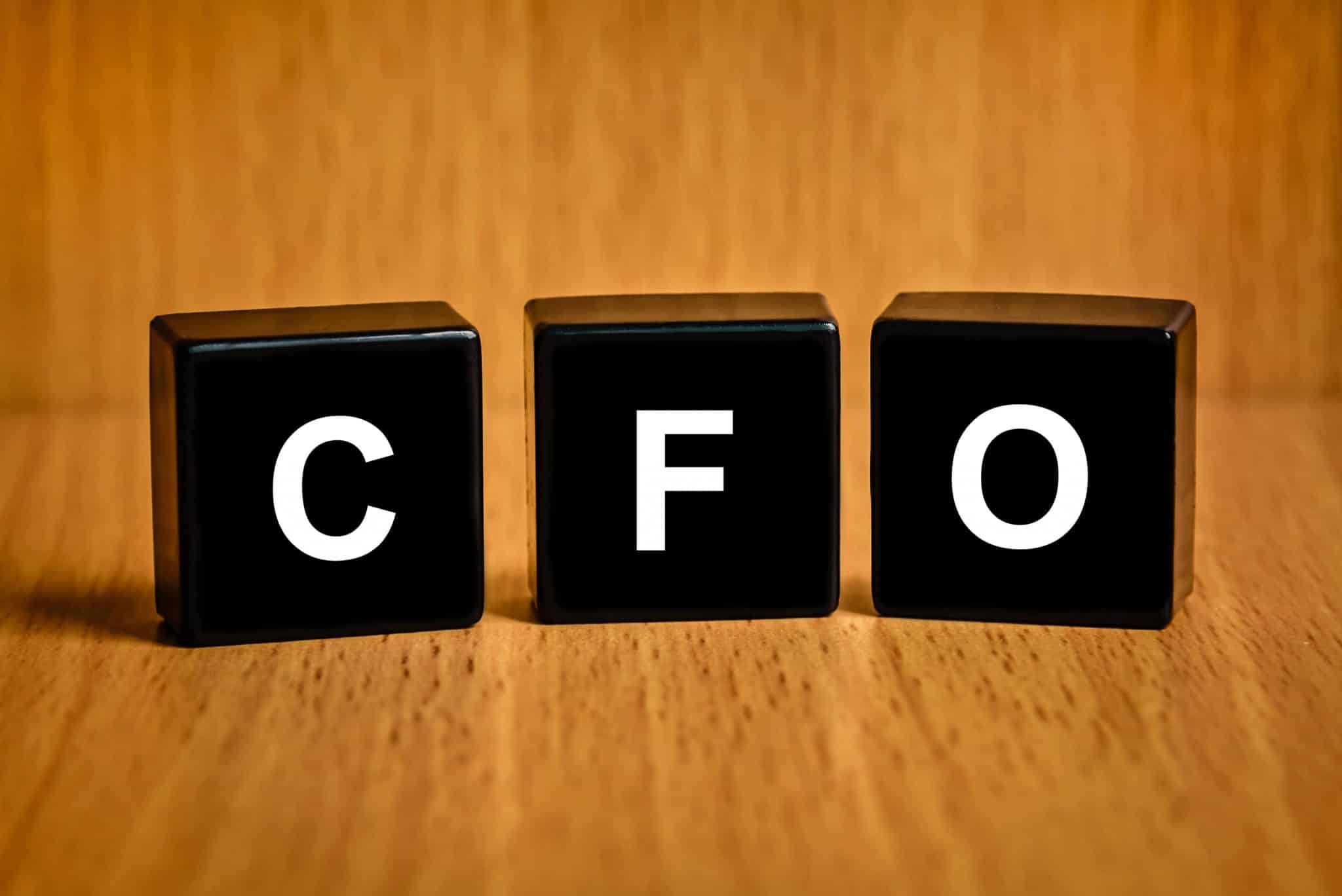If you have an interest in assisting people, companies, and other entities with their financial goals, you may want to consider a career in the finance profession. The Certified Financial Analyst (CFA) designation is one option for those interested in a financial services career. These professionals aid corporations and individuals in making wise financial decisions. An investment career may be a suitable fit for a finance professional who wants to expand their skill set and network while also increasing their earning potential. This article explains the salary of a certified financial analyst and how to become one. We also listed and explained some of the certified financial analyst online courses you can go for. Enjoy the ride!
Who Is a Certified Financial Analyst?
A Certified Financial Analyst (CFA) is an individual who has passed the exams and met the experience requirements set by the CFA Institute, a worldwide not-for-profit professional organization. For investment professionals, the CFA designation is the gold standard because of its emphasis on analysis, investment expertise, and ethics. The Certified Financial Analyst Institute maintains a member database where all individuals, businesses, and organizations can easily find and get in touch with professionals who have earned the CFA charter. Better employment prospects, more earning potential, and recognition amongst one’s colleagues in the finance business are just a few more advantages of holding a CFA charter.
Not everyone would benefit from taking this route in their professional lives, but those who are ambitious and eager to stand out in their area and make connections with other professionals and possible employers should consider it.
What Does a Certified Financial Analyst Do?
A Certified Financial Analyst (CFA) is an accredited financial specialist who helps people, companies, and institutions manage their investment portfolios. Institutional investment businesses, broker-dealers, insurers, pension funds, banks, and educational institutions are all possible workplace settings for these experts.
Those who work in the investment industry and have met the standards specified by the CFA Institute are the only ones who can use the CFA title. Members of the CFA Institute work at some of the most prestigious financial organizations in the world.
What Skills Should a Certified Financial Analyst Have?
The following are the skills a certified financial analyst should have:
- Examining the company’s financial statements
- Checking the numbers against projections and past times
- Conducting variance analyses and determining causes
- Reviewing funding needs and potential capital expenditures
- Making and assessing financial projections
- Revenue streams analysis and improvement suggestions
- Reviewing cost management and working capital administration in concert with other members of the finance team
- Ensure compliance with all regulatory requirements
How to Become a Certified Financial Analyst
Thinking of how you can become a certified financial analyst? Here are the steps you need to take to become a certified financial analyst
#1. Sign Up for the Certified Financial Analyst Course
Candidates pursuing the Certified Financial Analyst (CFA) designation must first enroll in the CFA program before they may sign up to take the Level I exam. One of the following conditions must be met before you can join the program:
- possess a bachelor’s degree.
- in the final year of the bachelor’s degree program
- possess a four-year resume that includes both full-time work experience and college completion
Candidates must also be native English speakers, have a passport valid for international travel, meet the professional conduct admission criteria, and be residents of a participating country in order to sit for the tests.
#2. Get Your Certified Financial Analyst Certification
To become a CFA, the next step is to take and pass all three levels of the CFA exams. Ethical and professional standards, economics, equity investments, fixed income, and portfolio management are some of the primary areas and topics covered in these examinations. Each test is tailored to a certain facet of financial investing:
- Stage 1: Investing-oriented evaluation of the candidate’s moral and professional rectitude
- Step 2: With an emphasis on asset appraisal, this exercise will put your skills as an analyst to the test.
- Stage 3: Focuses on portfolio management, testing your ability to apply standards in regard to portfolio management and compliance
Getting a CFA charter requires you to do well on the CFA exams. These tests are time-consuming because they are difficult. Some professionals are able to study for tests while on the job, but others feel that devoting a certain amount of time to studying is the key to success. According to the CFA Institute, it takes the typical candidate 322 hours to prepare for all three levels of the CFA Exam. This breaks down to an average of 304 hours for Level I, 329 for Level II, and 334 for Level III.
#3. Get Some Relevant Work Experience
Gaining 48 months of “acceptable work experience” is required to move on in the CFA charter holder process. This time can be accrued before, during, or after completing the exams. Work experience in a variety of financial and investment fields, including trading, economics, and corporate finance, is seen favorably by the CFA Institute.
However, at least half of that work experience must have included making investment decisions or producing a product with an effect on such decisions.
#4. Include Letters of Recommendation
In order to become a CFA charter holder, you must first pass three tests and amass the required job experience, and then submit reference letters to the CFA Institute. These people should be able to attest to your skills and professionalism, and they should also provide insight into why you should be granted a charter. References from previous managers or current CFA charter holders will carry more weight.
#5. Submit an Application to Become a Charter Holder
You can submit your application to become a CFA charter holder if you’ve fulfilled the aforementioned criteria. You’ll need to pay, then send in your qualifications for evaluation. Application processing time for normal membership at the CFA Institute can take up to 10 business days, while affiliate membership can take up to 4 weeks. As soon as possible after reviewing applications, applicants will be notified by email. You can call yourself a CFA charter holder once you’ve been accepted.
Certified Financial Analyst Salary
The average salary for a certified financial analyst in the United States is around $180,000 per year before cash bonuses and equity or profit sharing, as reported by the CFA Society. In the United States, a certified financial analyst can expect to earn a median annual salary of $69,271.
You can see that earning the CFA qualification can open up work prospects that are substantially higher paid by contrasting these two average incomes. The CFA charter is widely recognized as the standard for financial professionals and can lead to greater professional success for a certified financial analyst.
Certified Financial Analyst Online Courses
Do you know that there are some certified financial analyst online courses you can go for to help with your career as a certified financial analyst? Here are the certified financial analyst online courses you can for:
#1. Financial Modeling & Valuation Analyst (FMVA) – (CFI)
There is no better certification program for financial analysts than FMVA. The course has a robust syllabus, whilst being both all-encompassing and adaptable. The course introduces you to the building blocks of accounting, such as GAAP (Generally Accepted Accounting Principles) and the other essential accounting standards. Capital investments, the optimal capital structure, the financing procedure, and other central finance concepts are also covered. FMVA provides you with the skills necessary to get started in the financial analyst field, adding significant value to your resume.
More than a million people have graduated from CFI, and many of them now hold positions in illustrious businesses like Goldman Sachs, JP Morgan, BlackRock, Amazon, etc.
#2. Online Professional Certificate In Corporate Finance (New York Institute Of Finance)
If you want to further your education in the field of finance, go no further than the New York Institute of Finance (NYIF). NYIF has been in the business of financial education for over 90 years, and its expertise has benefited numerous individuals in the industry around the world. NYIF is a preferred training facility for top corporations such as the SEC, Morgan Stanley, Bank of America, etc. The Efficient Market Hypothesis is discussed in relation to corporate financial decision-making, and the course material concentrates on the many components of corporate investment projects and the flow of corporate finances.
Having this corporate finance diploma on your resume will give you more credibility everywhere in the world. You will learn the basics of financial analysis, such as how to evaluate a merger or acquisition, in this course. Courses can be taken at NYIF either online or in person.
#3. Financial Analysis For Decision Making (edX)
Joining forces with the world’s leading educational institutions The edX platform is an electronic classroom. It gives students access to information and practical experience. The book Financial Analysis for Decision Making was written by professors from Babson College, a highly regarded university. Auditing this class won’t cost you a dime. What this implies is that there are no financial barriers to gaining access to the course’s videos, quizzes, and assignments. However, there is a cost associated with receiving a completion certificate.
This course will teach you how to value stocks, bonds, and companies in order to assess their potential financial success. It also teaches how to assess fresh concepts for novel goods and services and weigh costs and advantages. You will also learn how to assess the financial feasibility of business opportunities in this class. Obtaining capital, making sound financial judgments, etc., are also major concerns. The Financial Modeling course is excellent.
#4. The Complete Financial Analyst Course 2023 (Udemy)
This is the most popular course on Udemy, with over 200k students enrolled. If you want to learn financial analysis, this is the best and most complete course available. The course not only teaches students how to analyze financial statements but also how to use software like Microsoft Excel and PowerPoint. The course material includes business analysis, valuation, budgeting, and many other essential components of financial analysis.
There is no prerequisite knowledge for this course, and it teaches topics from the very beginning all the way up to the very end. It’s the greatest option because it includes quizzes, activities, detailed notes, and downloadable resources all in one package. It’s a good option among the many online programs for aspiring financial analysts.
Why Become a Certified Financial Analyst Charter Holder?
A CFA charter holder is a valuable credential for anyone looking to enter the financial services sector. The CFA charter is highly sought after because of its global prestige and reputation. It’s also evident that CFAs make a good living wage. Earning the Certified Financial Analyst (CFA) designation can improve your long-term earning potential. The cost of getting a CFA charter is minimal in comparison to the cost of getting an MBA from an accredited university.
A postgraduate degree may cost well over $100,000. A fee of around $10,000 will be incurred for studying for and taking the three CFA tests. You can counterbalance this by working to earn money while pursuing the charter. The Certified Financial Analyst charter holder ultimately provides flexibility. It gives you more freedom than any other professional designation to chart your own course in the competitive financial services industry. Prestige and the fulfillment of achieving a goal that many people consider unachievable come with that.
How Long Does It Take To Become a Certified Financial Analyst?
The typical commitment period is four years or more. This includes studying for the tests, gaining the required job experience, and submitting an application to the charter. The CFA Institute reports that the typical CFA devotes 300 hours to each exam level to study and preparation.
What Is the Cost of Taking the Certified Financial Analyst Exam?
The cost to register for a test varies based on when you register. There is a $700 early registration cost, a $1,000 regular registration, and a $1,450 late registration price. When you sign up for the Level I exam, you’ll have to pay an extra $450 in enrollment costs on top of the exam fees.
When Preparing for the Certified Financial Analyst Exams, What Should I Focus On?
The CFA exams are meant to be studied independently, rather than as part of a curriculum. There are many places to get ready for the CFA exam, both online and offline. The CFA Institute offers free online courses, personalized study programs, flashcards, practice questions, and mock tests to anybody who registers for the exam.
What Are the Certified Financial Analyst Pass Rates?
Annual pass rates for the CFA exam are not constant. The most recent percentages for each level of success are as follows: 41% for Level I, 44% for Level II, and 56% for Level III. Keep in mind that fewer than 20% of applicants will succeed on their first three tries at passing all three exams. If applicants need more than one try to pass the tests, they should not let that deter them.
Which Is Better CFA or CFP?
Some certified financial planners also work with entrepreneurs, albeit this is not their primary focus. Certified Financial Planners (CFPs) may assist with more than just saving and investing for the future. When it comes to advising businesses, however, CFAs are in high demand by the likes of financial institutions, mutual fund companies, pension funds, insurance agencies, and securities firms.
Which Is Better CPA or CFA?
The CPA designation is well-known and well-accepted, yet it is typically linked to work in the accounting industry. The CFA Program is a certification for financial professionals that gives in-depth education in investment analysis, portfolio management, and professional ethics in order to further their careers.
Can I Take CFA without a Degree?
Each candidate must have earned a bachelor’s degree or be in the last year of a bachelor’s program in order to register for the CFA exam. Professional experience requirements can also be met. A valid passport and the ability to take the exam in English are prereqs for the CFA.
Is CFP Equivalent to MBA?
No, a CFP is not equivalent to an MBA. A CFP professional has been trained to give sound advice on personal financial management. A master of business administration graduate understands how corporations function.
Final Thoughts
For effective governance, macroeconomic stability, and resource use, excellent public sector financial management is crucial. Making sure citizens have access to basic services requires raising taxes, allocating public funds, and engaging in public spending. Everyone must trust that their taxes will be spent wisely and that their government won’t steal any of their money. Only then will the government be able to collect the necessary funds.
Furthermore, in most nations, public finance accounts for between 30 and 40 percent of GDP, therefore it is a sizable percentage of the economy overall. Certified financial analysts are the people in charge of the company’s budget and financial planning. Financial analysts play an equally crucial function in commercial organizations. The state of a company’s finances can be learned about in great detail by perusing its financial reports. They estimate future income and expenditures to build budgets and plan for the organization’s future.
Related Articles
- What Is CFA: Meaning, Requirements, Salary & Program
- Certified Financial Analyst: Definition, Requirements, Fees, Salary (+ quick tips)
- TOP FINANCE CERTIFICATIONS IN 2023.
- Charter Account: Best Easy Guide to Get Started (+ free course)






